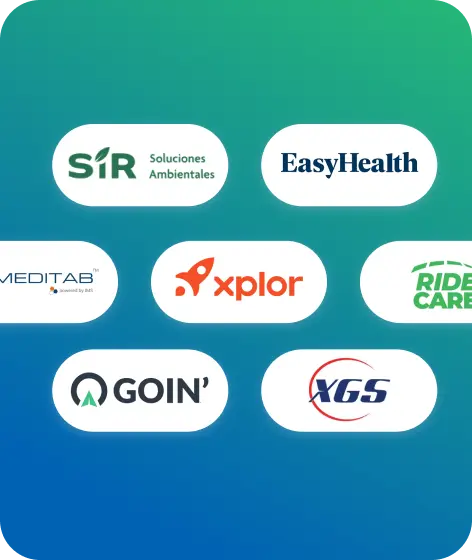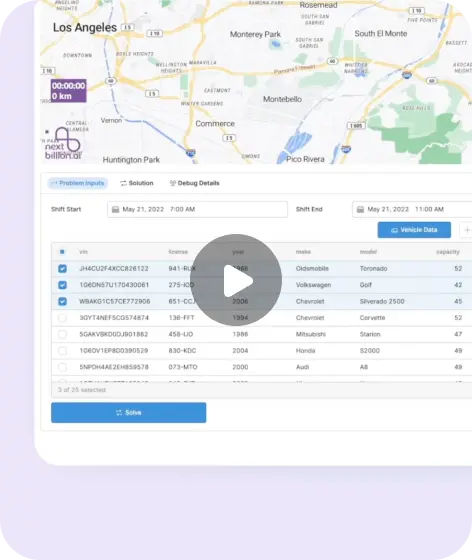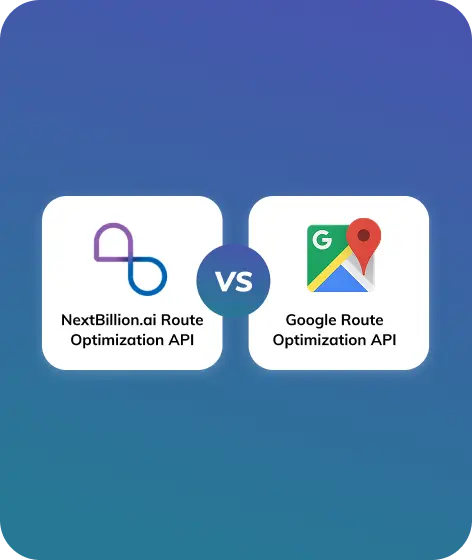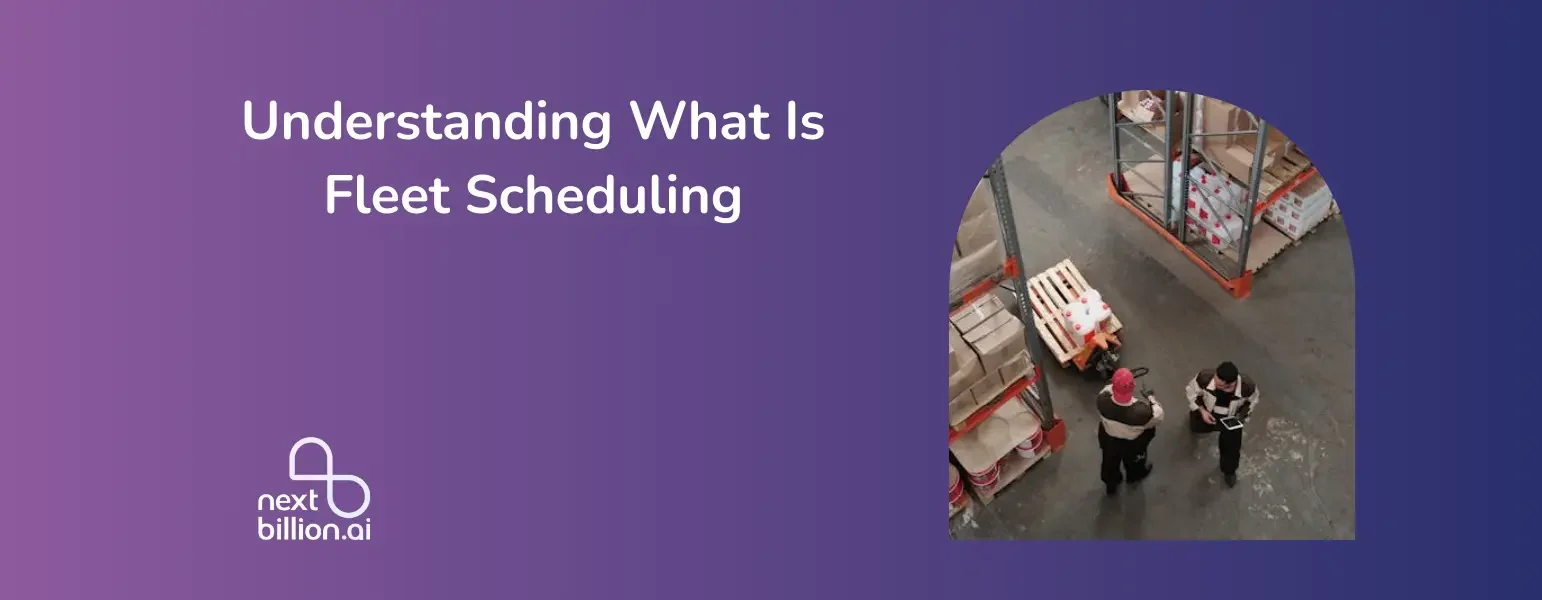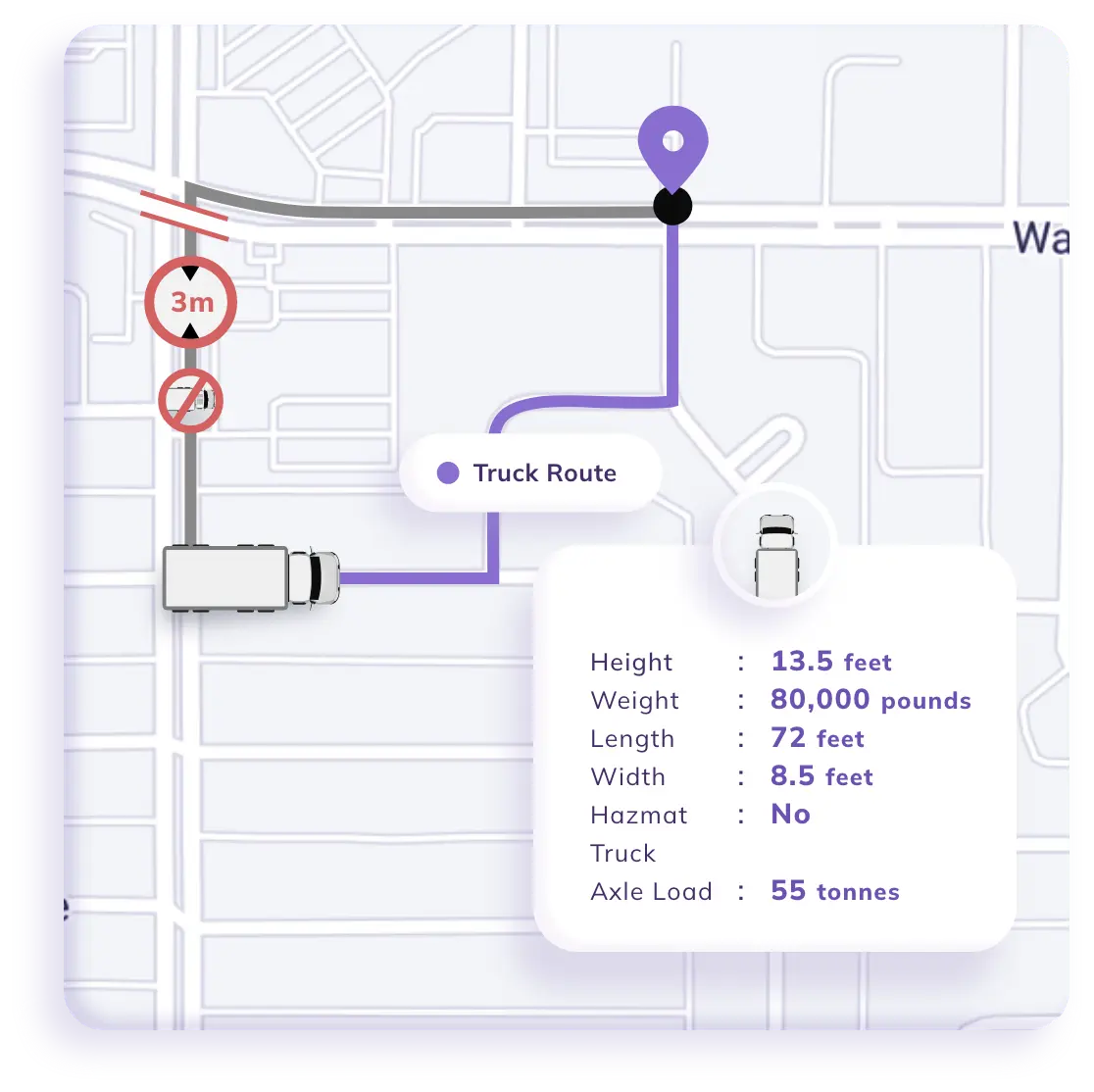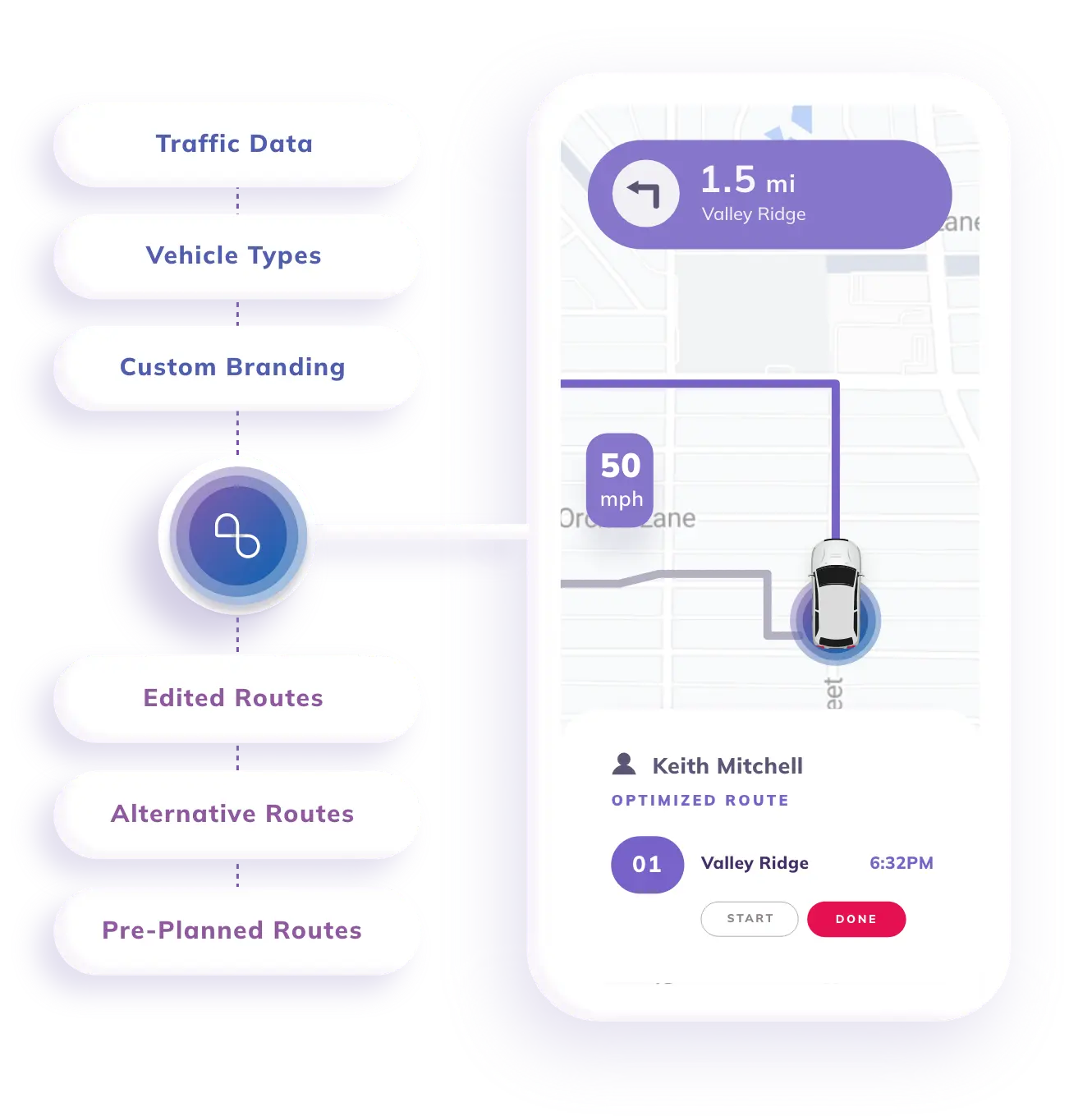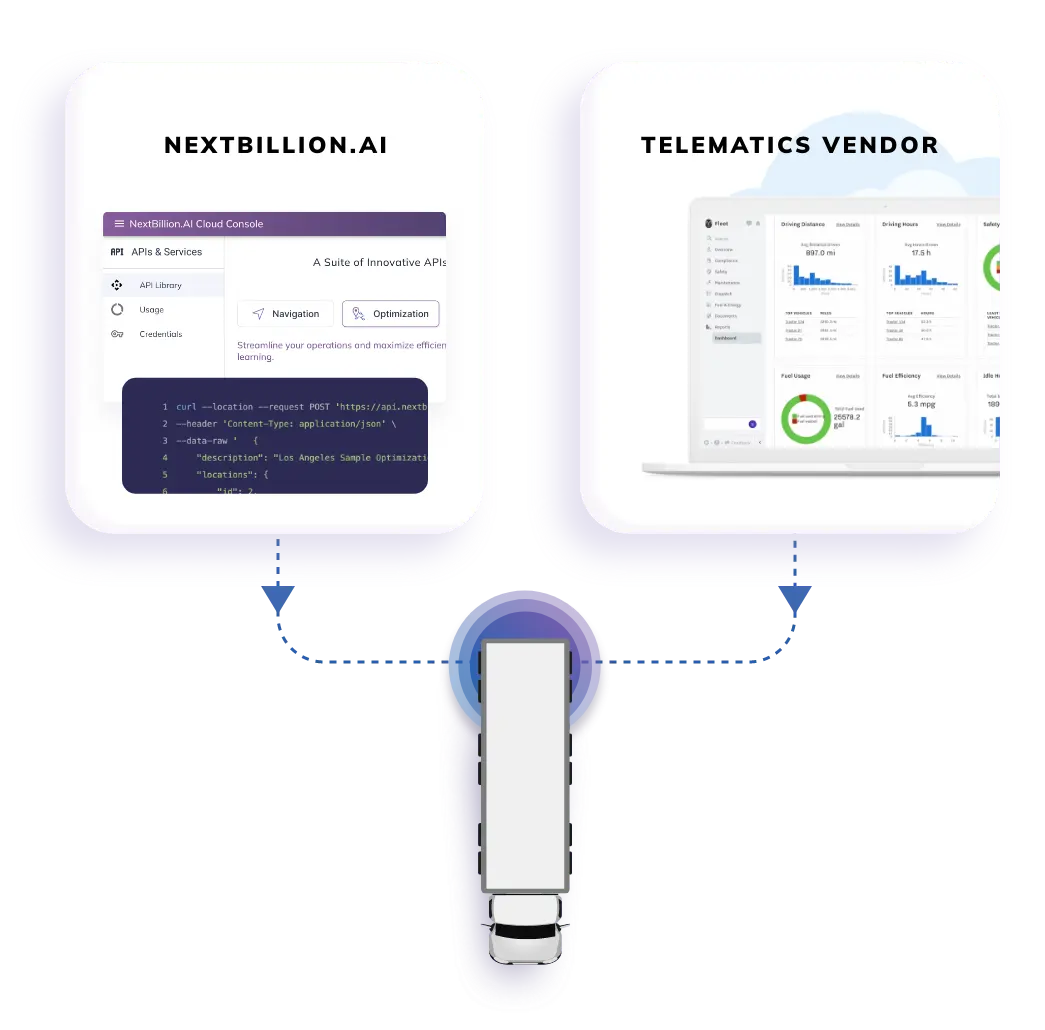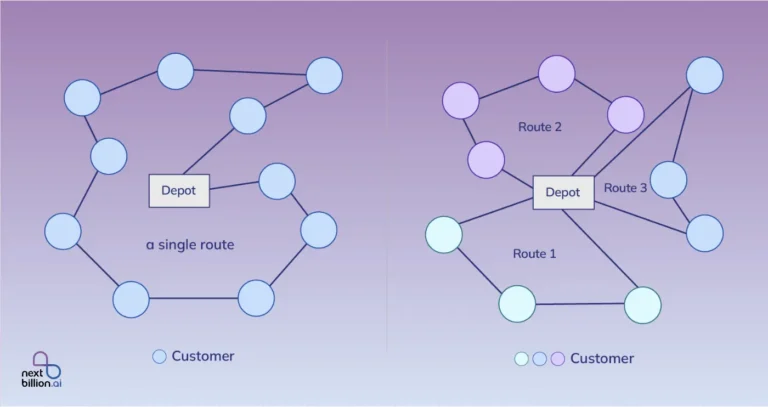
Table of Contents
Fleet management is the strategic planning and management of a business’s fleet of vehicles. It helps to make things run more smoothly, cut costs, and make sure rules are followed. It quickly changed from just tracking vehicles to a more complete method that includes many aspects of business operations.
Because modern employee transportation is so complicated, fleet management is an important part of running a business.
Fleet management that works well in the context of employee transportation makes sure that everything runs smoothly and quickly. It makes sure that commuting is safe and reliable by optimizing routes and schedules and keeping an eye on vehicle maintenance and safety rules.
What is Fleet Scheduling?
Fleet management is an organized method for businesses to organize and coordinate their work vehicles. Its three goals are to boost efficiency, cut costs, and make sure that government rules are followed.
Fleet management has a lot of uses when it comes to moving employees around. Tracking vehicles, planning maintenance, managing drivers, managing fuel, and giving detailed reports are some of the things that it covers. Fleet management for businesses also makes sure that vehicles are used safely and responsibly, and that vehicles can be tracked in real time.
As businesses change, it’s more important than ever to understand fleet management in the context of moving employees. This is not only to improve operations but also to give consistent value to employees who travel to work every day.
A Quick Look Back at Fleet Management
When factories started to make things, transportation changed in big ways. The main ways that goods were moved were by railroads, steamships, and later trucks. All of this means that these growing fleets need organized systems to help them be managed and used most efficiently.
The need for fleet management grew out of these changes. In the beginning, fleet management was mostly done by hand, with ledgers, logs, and regular checks. Rather than data, decisions were often made based on gut feelings and past experiences.
However, improvements in technology in the second half of the 20th century, especially the arrival of computers and then the Internet, brought fleet management up to date. By the 1980s and 1990s, computerized systems helped fleet managers keep track of how often vehicles were used, when they needed to be serviced, and how much it cost to run the business.
In the last 20 years, GPS and more advanced software have changed the way fleet management is done. They turned it from a problem with logistics into an asset for businesses.
This role is even more important when it comes to daily employee transportation. Providing vehicles to employees to help them get to work on time is the simple goal at hand. As the world gets busier and streets become synonymous with traffic, managing fleets becomes more important than ever.
Benefits of Fleet Scheduling
Better operational efficiency: One of the main benefits is that operations are streamlined. By putting in place proper vehicle maintenance schedules, optimized routing, and effective driver management, companies can make sure deliveries happen on time, cut down on downtime, and get the most out of their assets.
Savings on costs: A well-run fleet has a direct effect on the bottom line. Companies can save a lot of money by doing things like preventing problems before they happen and lowering the cost of major repairs.
Better safety and risk management: keeping an eye on how drivers act, making sure vehicles are checked regularly, and tracking them in real-time can greatly lower accidents and liabilities. This makes sure that both the driver and the workers are safe.
Sustainability and Environmental Responsibility: Fleet management is a key part of lowering a company’s carbon footprint. They do this by focusing on fuel-efficient routes, cutting down on idling times, and possibly buying eco-friendly vehicles. This helps the brand’s reputation and fits with global goals for sustainability.
How Does Fleet Scheduling Work?
On the surface, fleet management software seems like an easy way for businesses to deal with their many problems. However, these technologies can only be used to their fullest when other things are in order.
Computer software: GPS tracking is the main part of managing a fleet. It keeps an eye on the vehicles and knows exactly where they are, which the fleet manager can see by using software.
Tracking a vehicle is possible with software that also gives drivers information about their safety and performance while they are on the road.
Telematics: With telematics, it’s easier for fleet managers to find out when a vehicle needs to be serviced or repaired by looking at its acceleration, speed, braking force, and fuel consumption.
You can get a good idea of how the driver is behaving by looking at the sensors, which pick up on any sudden movements like speeding and hard braking. This information directly affects how much gas the vehicle uses.
Repairs and maintenance: Gathering the data and keeping up with the costs of maintaining a fleet can be very expensive. Employing a fleet management system can help lower costs by ensuring that vehicles are serviced on time, negotiating deals for maintenance, and planning deliveries ahead of time.
Factors considered in fleet scheduling:
Maintenance on Vehicles: Some say that maintenance on vehicles is the most important part of fleet management in the staff transport business. Making sure that every vehicle is in perfect working order is important for both efficiency and safety. Small problems don’t get worse over time when compliance is checked regularly.
Regular maintenance, such as changing the oil, inspecting the brakes, and rotating the tires on time, can make a car last a lot longer. It makes sure that businesses get the most out of their assets. Problems that come up out of the blue can be fixed quickly and correctly to keep downtime to a minimum. This keeps the fleet running and makes sure it keeps its promises.
Management of Drivers: A fleet is only as useful as the people who drive it. Driver management includes hiring skilled drivers, making sure they keep learning, and checking in on their performance on a regular basis.
Drivers get the skills they need to get around on a variety of terrains through training programs. It also helps you deal with problems that come up out of the blue, like bad weather or road closures. It is very important to keep an eye on how drivers act, like how fast they go, how often they brake, and how well they stick to the route. Not only is it safer, but it also helps keep operational standards high.
A driver who is motivated and well-trained is an asset because they lower risks and make the whole fleet more productive.
Route Optimization: Route optimization has become a huge deal in fleet management since the rise of advanced GPS systems and data analytics. By looking at real-time traffic data, weather, construction work, and other factors, these fleet management systems suggest the best routes for vehicles.
This makes sure that workers get to work on time and cuts down on fuel use and vehicle wear and tear. Also, if problems come up out of the blue, real-time route optimization can recalculate and offer new routes. That makes sure that commitments are kept as much as possible.
Operational Costs and Efficiency: In the end, managing a fleet is as much about money as it is about how employees get to work every day. Fleet managers often have trouble balancing the operational budget with making sure that the vehicles are as efficient as possible.
Regular audits can help you find costs that aren’t necessary. They can be caused by wasteful habits, routes that are already taken, or old cars that use more gas. Fleet managers can make a lot more money by streamlining operations, renegotiating contracts with vendors, and using technology to get better information.
In a business where profits can be low, even small improvements can add up to big money.
Technology and Fleet Scheduling
Fleet management is going through a big change. Fleet management used to be done by hand with maps and logbooks, but now it’s done with advanced software, real-time tracking, and data analysis. As a result? Better efficiency, safety, and making money.
Fleet management software is a key part of this change. These platforms give you a full picture of how your fleet works by collecting information about the status of your vehicles, how your drivers act, and the most efficient routes.
With dashboards that are easy to use and deep analytics, managers can quickly find problem areas and put in place proactive strategies. They include rerouting vehicles in real time and planning preventative maintenance based on how often they are used.
The way fleets work has changed a lot because of GPS tracking. Vehicles are no longer “out of sight, out of mind” once they leave the building. Real-time GPS tracking lets you keep an eye on where each vehicle is, how fast it’s going, and which way it’s going. This makes sure that schedules are followed, that safety is improved (because speeding or deviations can be found right away), and that people are held more accountable.
To be honest, though, it’s hard to say what will happen in the future of fleet management. But it could be shaped by fleets of electric or hybrid cars that are designed to use as little energy as possible. The Internet of Things (IoT), AI, and machine learning are all becoming more common in our lives. Their use in fleet management could make transportation for employees more efficient, cost-effective, and environmentally friendly.
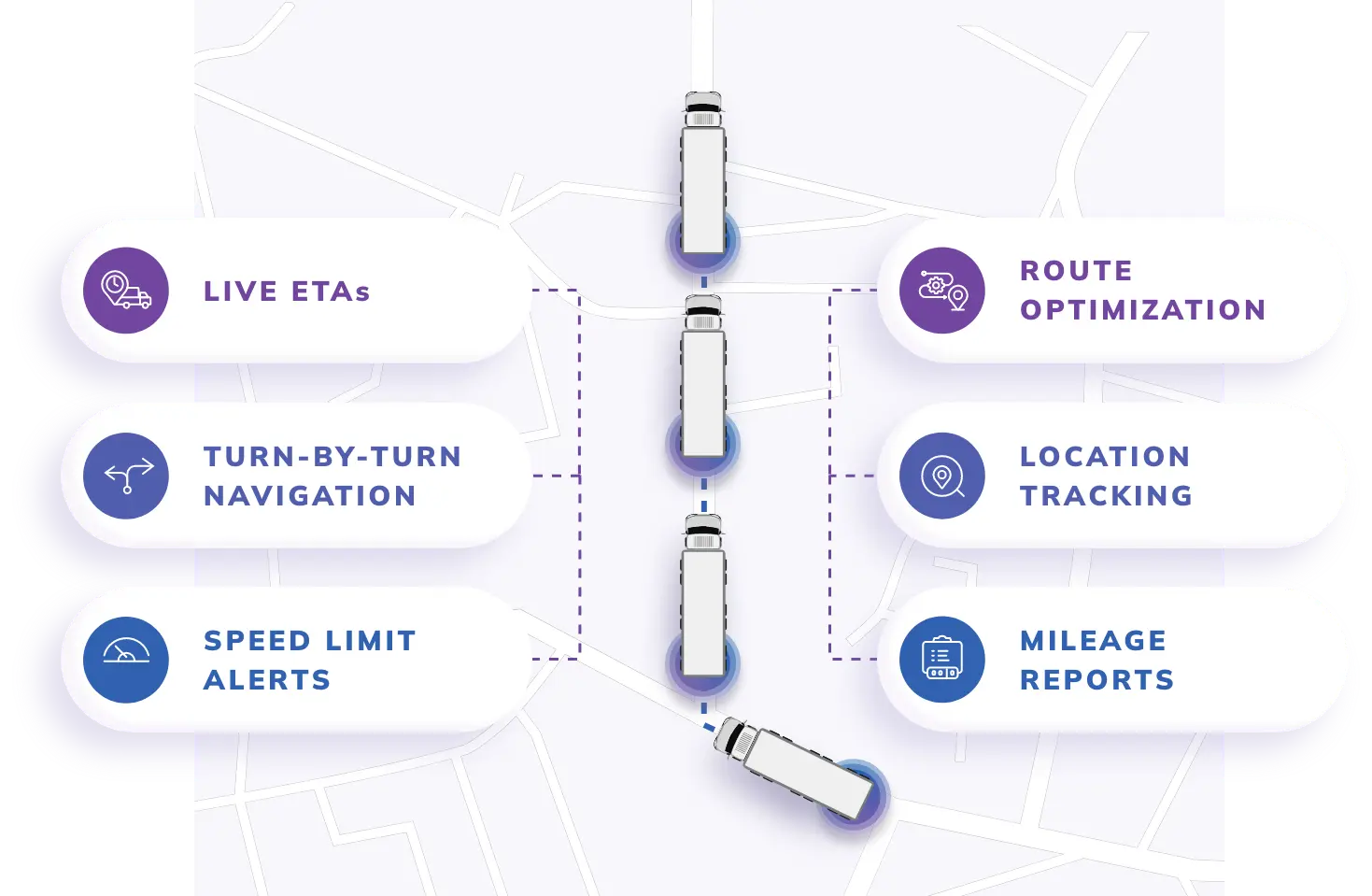
NextBillion.ai offers a robust Fleet Scheduling Solution tailored to meet the dynamic needs of businesses managing fleets of all sizes. Let’s delve into the key features and benefits of our innovative solution for fleet scheduling:
Advanced Scheduling Optimization
Our Fleet Scheduling engine is equipped with advanced optimization algorithms to generate optimal schedules that maximize fleet utilization while aligning with your business objectives. With customizable scheduling parameters, including driver availability, vehicle capacity, and service windows, businesses can create efficient schedules tailored to their specific requirements.
Intelligent Task Allocation
NextBillion.ai’s solution intelligently allocates tasks to vehicles based on factors such as task priority, location proximity, and vehicle capabilities. By optimizing task assignments, businesses can ensure balanced workloads, minimize idle time, and improve overall fleet productivity.
Turn-by-Turn Navigation
Our solution provides drivers with turn-by-turn navigation guidance to ensure smooth and efficient execution of scheduled tasks. Integrated with preplanned schedules, drivers receive optimized routes and real-time updates, enabling them to navigate to each destination with precision and punctuality.
Seamless Integrations
NextBillion.ai’s Fleet Scheduling Solution seamlessly integrates with existing fleet management systems, including telematics, ERP, and CRM platforms. By consolidating scheduling data and leveraging insights from these systems, businesses can optimize resource allocation, streamline operations, and enhance decision-making processes.
Live Tracking and Notifications
Businesses can track fleet vehicles in real time and receive notifications of schedule deviations or unexpected delays. With geofence-based alerts and live updates, managers can proactively address issues, reassign tasks if necessary, and ensure adherence to schedules for optimal fleet performance.
In conclusion, NextBillion.ai’s Fleet Scheduling Solution empowers businesses to optimize fleet schedules, improve efficiency, and deliver exceptional service to customers. With advanced scheduling optimization, intelligent task allocation, turn-by-turn navigation, seamless integrations, and live tracking capabilities, our solution is the ideal choice for businesses seeking to streamline fleet scheduling processes and achieve operational excellence.
About Author
Rishabh Singh
Rishabh Singh is a Freelance Technical Writer at NextBillion.ai. He specializes in Programming, Data analytics and technical consulting, turning complex tech into clear and engaging content.

